Early life and education
McKernan was born in Philadelphia, Pennsylvania, the youngest of six children, and educated at St. Vincent De Paul Grammar School, Germantown, and Cardinal Dougherty High School. His father Bernard was an unlettered man but established a belief in education as a way 'out of the muck'.
Upon graduation, McKernan went to sea in the US Merchant Marine. He then attended St. Joseph's University, Philadelphia and received his BA at Temple University in 1969. During the course of his education, he also sailed as an Ordinary Seaman, worked in a steel mill and entered the US Navy, seeing action in the Vietnam War.
He then began postgraduate studies in Education under Eustas O hEideain, O.P. at University College Galway, National University of Ireland.
McKernan hold a B.Sc.Ed degree from Temple University (1969); the M.A. (Hons) degree from University College Galway, Ireland (1973) working on an ethnographic study of Irish Travellers (nomads) children's education, and Doctor of Philosophy degree from the University of Ulster (1978).
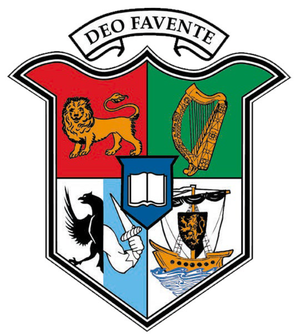
The University of Galway is a public research university located in the city of Galway, Ireland. A tertiary education and research institution, the university was awarded the full five QS stars for excellence in 2012, and was ranked among the top 1 percent of universities in the 2018 QS World University Rankings.

Action research is a philosophy and methodology of research generally applied in the social sciences. It seeks transformative change through the simultaneous process of taking action and doing research, which are linked together by critical reflection. Kurt Lewin, then a professor a MIT, first coined the term "action research" in 1944. In his 1946 paper "Action Research and Minority Problems" he described action research as "a comparative research on the conditions and effects of various forms of social action and research leading to social action" that uses "a spiral of steps, each of which is composed of a circle of planning, action and fact-finding about the result of the action".
The education system in Northern Ireland differs from elsewhere in the United Kingdom, but is similar to the Republic of Ireland in sharing in the development of the national school system and serving a similar society with a relatively rural population. A child's age on 1 July determines the point of entry into the relevant stage of education in the region, whereas the relevant date in England and Wales is 1 September.
The Doctor of Education is a research or professional doctoral degree that focuses on the field of education. It prepares the holder for academic, research, administrative, clinical, or professional positions in educational, civil, private organizations, or public institutions. Considerabel differences exist in structure, content and aims between regions. In the US, for instance, the EdD usually is a professional doctorate for working or learning professionals and has a large taught component with a smaller thesis, comparable to for example a DSW or DPH, whereas in the UK and Canada, the Ed.D is a full research doctorate with research and profession related courses but ultimately awarded for the thesis resulting from original research, that way aligning more with a Ph.D.

Pedagogy, from Ancient Greek παιδαγωγία (paidagōgía), most commonly understood as the approach to teaching, is the theory and practice of learning, and how this process influences, and is influenced by, the social, political and psychological development of learners. Pedagogy, taken as an academic discipline, is the study of how knowledge and skills are imparted in an educational context, and it considers the interactions that take place during learning. Both the theory and practice of pedagogy vary greatly as they reflect different social, political, and cultural contexts.

In education, a curriculum is broadly defined as the totality of student experiences that occur in the educational process. The term often refers specifically to a planned sequence of instruction, or to a view of the student's experiences in terms of the educator's or school's instructional goals. A curriculum may incorporate the planned interaction of pupils with instructional content, materials, resources, and processes for evaluating the attainment of educational objectives. Curricula are split into several categories: the explicit, the implicit, the excluded, and the extracurricular.
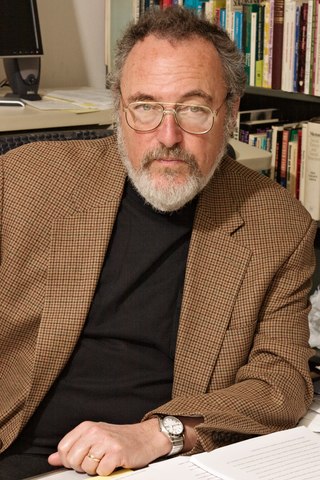
Michael W. Apple is an educational theorist specialized on education and power, cultural politics, curriculum theory and research, critical teaching, and the development of democratic schools.
Donald Harman Akenson is an American historian and author. Notably prolific, he has written at least 23 book-length, scholarly monographs, 3 jointly-authored scholarly books, 6 works of fiction and historical fiction, and 55 scholarly articles. He is a fellow of both the Royal Society of Canada and the Royal Historical Society (UK). He is also a Molson Prize Laureate, awarded for a lifetime contribution to Canadian culture. He was awarded a Guggenheim Fellowship in 1984, and in 1992 he won the prestigious Grawemeyer Award, then the richest non-fiction book prize in the world. Akenson received his B.A. from Yale University and his doctorate from Harvard University. He is Distinguished University Professor and Douglas Professor of History at Queen's University in Kingston, Ontario, Canada, and was simultaneously Beamish Research Professor at the Institute of Irish Studies, University of Liverpool (2006–10), and senior editor of the McGill-Queen's University Press (1982-2012).
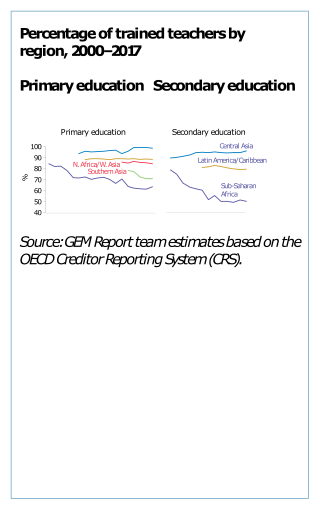
Teacher education or teacher training refers to programs, policies, procedures, and provision designed to equip (prospective) teachers with the knowledge, attitudes, behaviors, approaches, methodologies and skills they require to perform their tasks effectively in the classroom, school, and wider community. The professionals who engage in training the prospective teachers are called teacher educators.
Gerald Dawe is an Irish poet.
Educational leadership is the process of enlisting and guiding the talents and energies of teachers, students, and parents toward achieving common educational aims. This term is often used synonymously with school leadership in the United States and has supplanted educational management in the United Kingdom. Several universities in the United States offer graduate degrees in educational leadership.
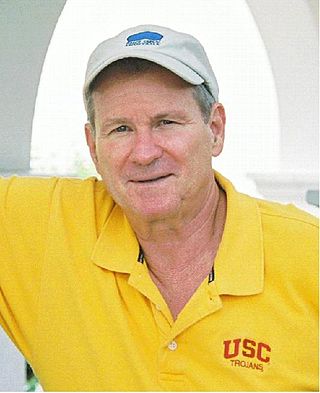
Fenwick W. English is an education professor.
Floyd Grant Robinson is a teacher, education theorist and curriculum developer. He has written many works on the topics of stimulating complex thinking and the importance of education across the entire lifespan. Robinson is most notable for his work done while at the Ontario Institute for Studies in Education (OISE) between 1965 and 1991.
John Henry Whyte was an Irish historian, political scientist and author of books on Northern Ireland, divided societies and church-state affairs in Ireland.
Thomas S. Popkewitz is an Professor in the Department of Curriculum and Instruction, University of Wisconsin–Madison School of Education, USA. His studies explore historically and contemporary education as practices of making different kinds of people that distribute differences. He has written or edited approximately 40 books and 300 articles in journals and book chapters translated into 17 languages. Recent studies focus on the comparative reason of educational research as cartographies and architectures that produce phantasmagrams of societies, population and differences. The studies entail theoretical, discursive, ethnography, and historical studies that explore school, professional identities, and the relation to conceptions of differences inscribed childhood, learning and cultural differences.
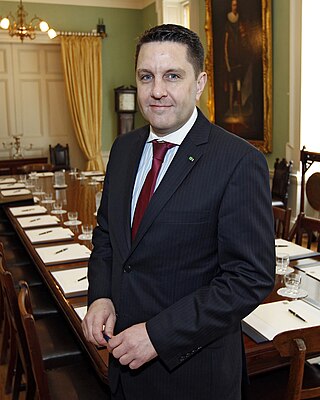
James O'Higgins Norman PC, MStJ, FRSA holds the UNESCO Chair on Tackling Bullying in Schools and Cyberspace at Dublin City University. He is the director of the National Anti-Bullying Research and Resource Centre, and a member of the Government of Ireland Advisory Council on Online Safety.

Keith M Lewin is a British Professor of International education and Development at the University of Sussex and Director of the Consortium for Research on Educational Access, Transitions and Equity (CREATE). He is known for his work in educational planning, economics and finance of education, teacher education, assessment, science and technology education policy in developing countries, educational aid and program evaluation. He has been adviser to various governmental, multilateral and non-profit organisations on education planning and policy, including the World Bank, DFID, UNESCO International Institute for Educational Planning, UNICEF, UNDP, AusAID and others. His country experience includes projects in Ghana, Rwanda, Uganda, Kenya, Tanzania, Malawi, South Africa, Zimbabwe, Mauritius, Trinidad and Tobago, Barbados, India, Sri Lanka, Bangladesh, Malaysia, and China.
The Interpersonal Gap is a model of communication developed by John L. Wallen, an educator and a pioneer in the fields of emotional intelligence and interpersonal communication. As Chinmaya & Vargo state in their 1979 paper on Wallen “Many people who conduct interpersonal relations laboratories have been influenced by the ideas of John Wallen, a social psychologist from Portland, Oregon. He has written a number of papers which identify the sources of difficulty in communication. In these writings, Wallen focuses on the process of communication, not the underlying motives, drives, traits, attitudes, or personality characteristics of the individual. Wallen's ideas are easily understandable to laymen and professional alike.”
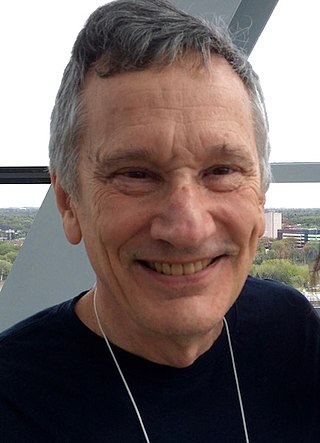
John Miller is a Canadian educator, Professor of Curriculum, Teaching and Learning at Ontario Institute for Studies in Education (OISE) at University of Toronto.
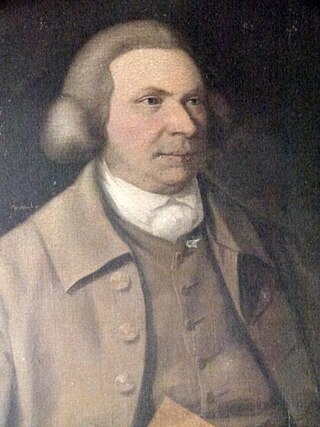
David Manson (1726-1792) was an Irish schoolmaster who in teaching children basic literacy sought to exclude "drudgery and fear" by pioneering the use of play and peer tutoring. His methods were in varying degrees adapted by freely-instructed hedge-school masters across the north of Ireland, and were advertised to a larger British audience by Elizabeth Hamilton in her popular novel The Cottagers of Glenburnie (1808).










